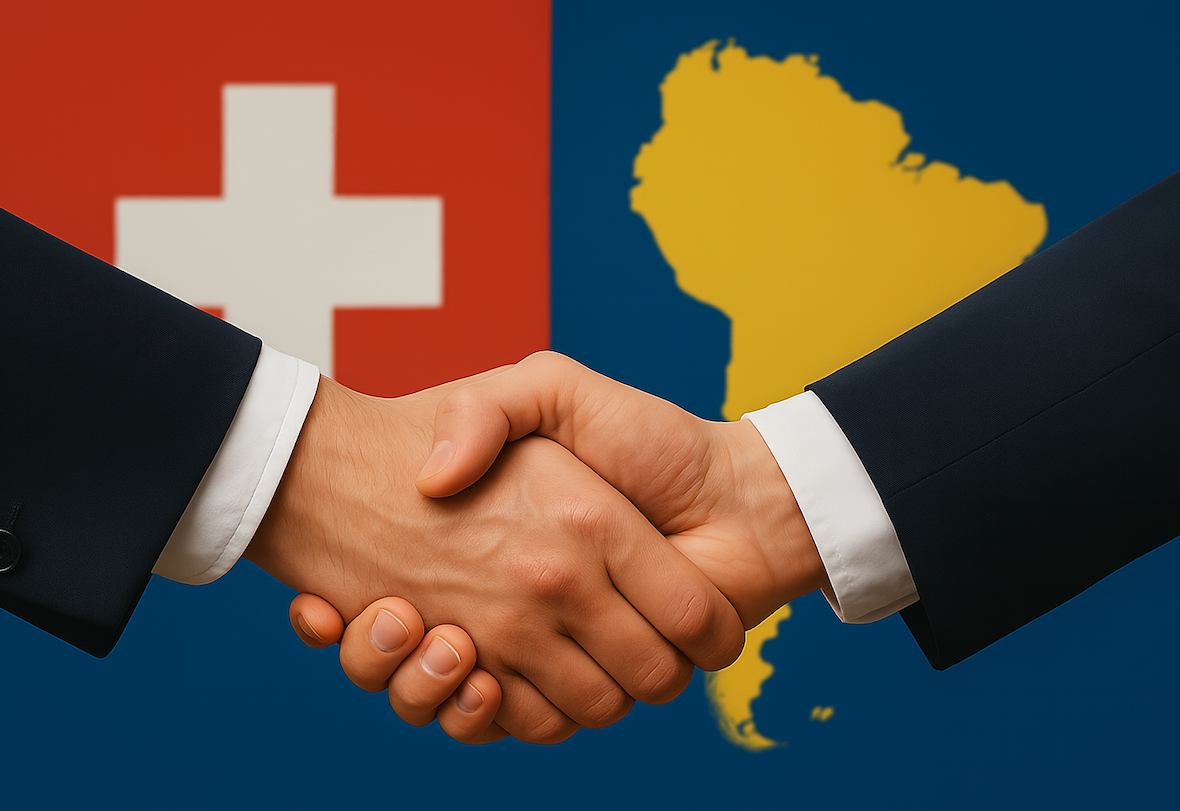
Switzerland enters free trade deal with Mercosur to boost exports
7 July 2025
 The new free trade agreement between EFTA and Mercosur will benefit Swiss exporters in key sectors like pharmaceuticals, machinery, and precision instruments.
The new free trade agreement between EFTA and Mercosur will benefit Swiss exporters in key sectors like pharmaceuticals, machinery, and precision instruments.
Switzerland is set to sign a free trade agreement with Mercosur, boosting access to a 270-million-strong market and reducing tariffs on 95% of exports.
The European Free Trade Association (EFTA), which comprises Switzerland, Iceland, Norway, and Liechtenstein, has finalized a long-awaited free trade agreement with the South American bloc Mercosur, which includes Argentina, Brazil, Paraguay, and Uruguay. The announcement marks the conclusion of negotiations that began in 2017, culminating in a deal expected to generate significant economic benefits for Swiss industry.
According to the Swiss State Secretariat for Economic Affairs (SECO), the agreement could lead to customs duty savings of up to CHF 160 million per year. Nearly 95% of Swiss exports to Mercosur countries will eventually be exempt from tariffs under the agreed timelines. Swiss exports to the region already surpassed CHF 4 billion in 2024, reflecting a 32% increase compared to 2014.
From a trade policy perspective, the agreement ranks among Switzerland’s most impactful, alongside its deals with the EU, China, and India. It offers Swiss exporters improved market access in a region with over 270 million inhabitants, bolstering competitiveness in sectors such as machinery, pharmaceuticals, and precision instruments.
Swiss business associations welcomed the breakthrough, highlighting the high tariffs traditionally faced by exporters in Mercosur markets. According to Economiesuisse, the lack of such an agreement would have placed Swiss companies at a disadvantage following the recent EU-Mercosur deal.
Balancing sustainability goals with domestic concerns
The agreement also includes a chapter on sustainability, with binding provisions and an additional declaration on environmental and labor protections. These measures are expected to undergo close scrutiny by NGOs and the Swiss public.
On the other hand, concerns have been voiced by representatives of Swiss agriculture and viticulture. The agreement grants tariff quotas for sensitive products such as beef and wine, raising fears of increased competition. Industry representatives have called for accompanying measures to support domestic producers and preserve Switzerland’s agricultural diversity.
Before entering into force, the agreement must be signed by the Federal Council and approved by the Swiss Parliament. A referendum is possible, as was the case with the 2021 Indonesia trade deal, which passed with a narrow majority.

